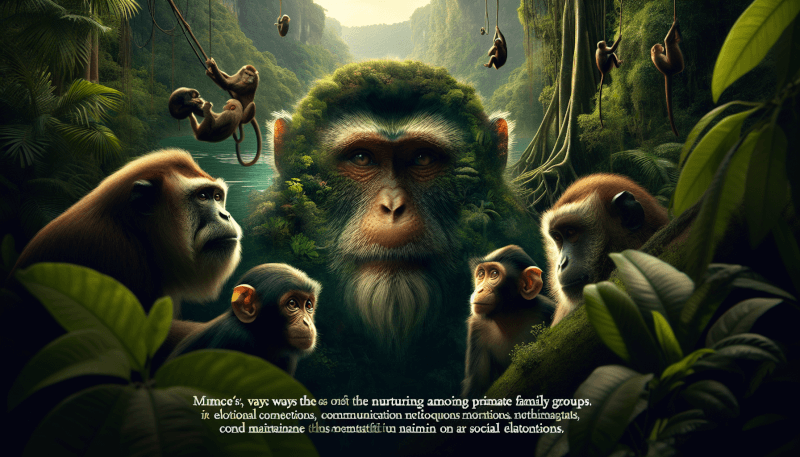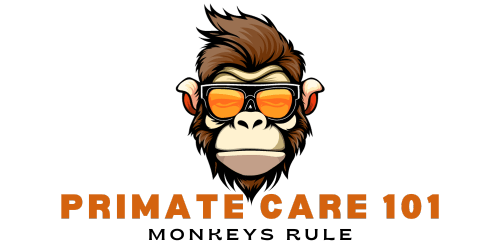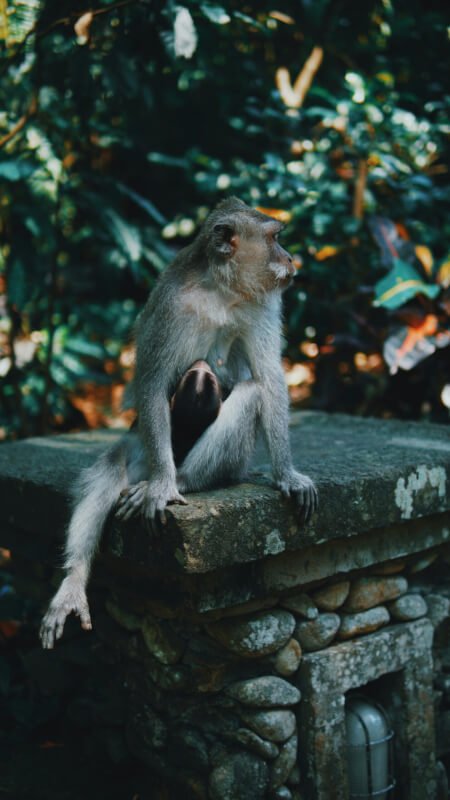Have you ever wondered how primate family groups form and maintain their social bonds? In this article, we will explore the fascinating world of primates and delve into the various ways in which they nurture their relationships. From grooming rituals to playful interactions, these creatures have developed intricate strategies to strengthen their kinship ties. Join us on this journey as we uncover the secrets behind the nurturing of social bonds among primate family groups.
Importance of Social Bonds in Primate Family Groups
Primate family groups rely heavily on social bonds for their survival and protection. These bonds not only provide a sense of belonging and security but also play a crucial role in improving the reproductive success of individuals within the group. Additionally, strong social bonds strengthen cooperation and enhance overall group dynamics, leading to a more cohesive and efficient social unit.
Enhancing Survival and Protection
Social bonds significantly contribute to the survival and protection of primate family groups. By forming strong relationships and maintaining close ties with other group members, individuals increase their chances of receiving cooperation and support when facing threats or predators. In times of danger, group members can come together to defend each other, maximally increasing their chances of survival. Furthermore, social bonds promote vigilance, as individuals within the group can alert others to potential dangers, allowing for a coordinated response to external threats.
Improving Reproductive Success
Social bonds in primate family groups are also instrumental in improving reproductive success. Males establish affiliative relationships with females, forming pairs or harems that can last for extended periods. These affiliations increase a male’s chances of reproductive success by ensuring access to mates and providing support during mating efforts. By forming strong bonds, males can also defend their offspring from potential rivals, thereby ensuring their own genetic legacy is passed on to future generations.
Strengthening Cooperation and Group Dynamics
Social bonds within primate family groups enhance cooperation and strengthen group dynamics. Strong affiliative and maternal bonds foster cooperative behavior, as individuals are more likely to align their interests and work together towards common goals. Within the group, dominant individuals often play a vital role in maintaining social harmony and mediating conflicts. The shared bond between group members allows for effective communication and reduces the likelihood of aggression within the group, creating a more cohesive and stable social structure.
Types of Social Bonds in Primate Family Groups
Primate family groups exhibit various types of social bonds that contribute to their overall cohesion and functioning. These bonds include affiliative bonds, maternal bonds, sibling bonds, and alloparental bonds.
Affiliative Bonds
Affiliative bonds refer to the strong social connections and relationships formed between individuals within a primate family group. These bonds can be based on companionship, grooming, or mutual support and are often the foundation of cooperative interactions and overall group cohesion. Affiliative relationships between individuals serve as a vital source of emotional and physical support, providing comfort and reducing stress within the group.
Maternal Bonds
Maternal bonds are particularly significant in primate family groups, where mothers play a crucial role in raising their offspring. These bonds are formed between a mother and her offspring, and they involve extensive care, protection, and nurturing. Maternal bonds not only ensure the survival and development of the young but also contribute to the socialization and learning processes within the group. Through maternal care, mothers pass on important skills and behaviors to their offspring, strengthening the group as a whole.
Sibling Bonds
Sibling bonds are formed between individuals who share at least one biological parent within a primate family group. These bonds serve multiple purposes, including socialization, protection, and cooperation. Siblings often engage in play behavior, which assists in the development of social and cognitive skills. Additionally, siblings can provide support and help defend each other during conflicts, contributing to a cohesive social structure within the group.
Alloparental Bonds
Alloparental bonds occur when individuals who are not the biological parents of an offspring contribute to its care and upbringing. This behavior is commonly observed in primate family groups, where older siblings, aunts, uncles, or even unrelated individuals take on caregiving roles. Alloparental bonds strengthen social ties within the group and allow for greater cooperation in childcare, ensuring the well-being and survival of the young.
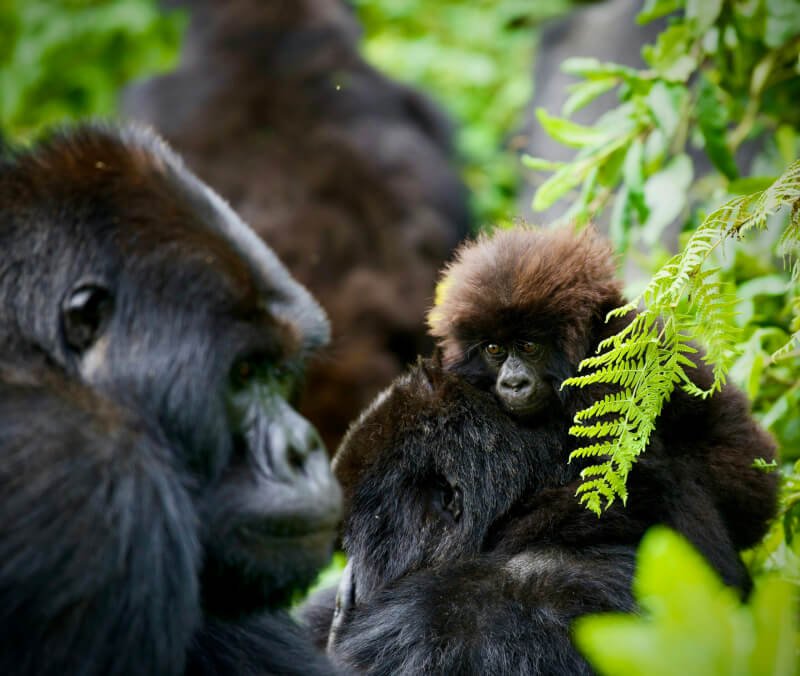
Factors Influencing the Formation of Social Bonds
Various factors influence the formation of social bonds within primate family groups. Understanding these factors can provide insight into the complexities of their social structures and behaviors.
Genetic Relatedness
Genetic relatedness plays a significant role in the formation of social bonds. Primate family groups typically consist of individuals who are genetically related to each other, such as parents, siblings, and offspring. The shared genetic heritage promotes kinship-based cooperation and altruistic behavior within the group, as individuals are more likely to help relatives pass on their genes to future generations.
Individual Experiences
Individual experiences also influence the formation of social bonds within primate family groups. Early life experiences, such as maternal care and interactions with siblings, shape an individual’s social skills and capacity for bonding. Positive experiences during these crucial developmental stages lay the foundation for future social interactions and relationships within the group.
Environmental Factors
Environmental factors, including resource availability and habitat characteristics, can impact the formation of social bonds. Limited resources, such as food or shelter, may lead to competition and potential conflicts within the group. On the other hand, access to abundant resources can foster cooperation and reduce competition, strengthening social bonds. Moreover, habitat fragmentation and changes can disrupt existing social structures, leading to the formation of new social bonds or the dissolution of existing ones.
Communication and Social Bonding
Communication plays a vital role in the formation and maintenance of social bonds within primate family groups. Various forms of communication, including vocalizations, grooming, and facial expressions, help individuals establish and strengthen their social connections.
Vocalizations and Calls
Primates use a wide array of vocalizations and calls to communicate with other members of their family groups. These vocalizations serve multiple purposes, such as signaling alarm, coordinating group movements, or expressing emotional states. Vocalizations play a crucial role in establishing affiliative bonds, as they can convey trust, reassurance, and recognition among individuals within the group.
Grooming and Physical Contact
Grooming and physical contact are essential components of social bonding in primate family groups. Mutual grooming not only helps individuals maintain personal hygiene but also reinforces social bonds. Through grooming, individuals establish trust, reduce stress, and foster cooperation within the group. Physical contact, such as embracing, hugging, or playing, also contributes to the formation and maintenance of social bonds, enhancing overall group cohesion.
Facial Expressions and Body Language
Facial expressions and body language are powerful means of communication within primate family groups. Subtle facial expressions, such as a relaxed or tense posture, can convey important information about an individual’s emotional state and intentions. Body language, such as gestures or postures, can signal dominance, submission, or affiliation, providing valuable cues for social interactions and the development of social bonds.
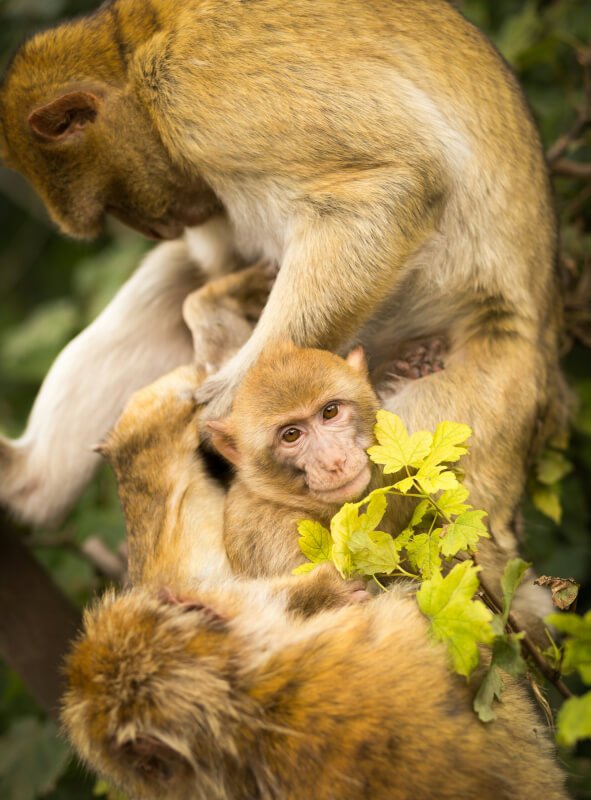
Role of Play in Social Bonding
Play behavior plays a significant role in the formation and strengthening of social bonds within primate family groups. Play is a form of social interaction that involves repeated, spontaneous, and non-goal-oriented activities, often accompanied by positive emotional states.
Types of Play Behavior
Primates engage in various types of play behavior, including wrestling, chasing, and object play. Play behavior allows individuals to practice social skills, such as cooperation, communication, and conflict resolution, all of which contribute to the formation of social bonds. Play can also help establish hierarchies within the group and facilitate the development of cognitive and physical abilities.
Functions of Play in Social Bonding
Play behavior serves several functions in the context of social bonding within primate family groups. It provides opportunities for individuals to strengthen their social connections and affiliative bonds by engaging in reciprocal play interactions. Play also promotes trust and cooperation, as individuals learn to coordinate their actions, respect boundaries, and resolve conflicts. Additionally, play behavior fosters positive emotional experiences, which contribute to overall group cohesion and well-being.
Conflict Resolution and Social Bond Maintenance
Conflicts inevitably arise within primate family groups, and the ability to resolve these conflicts is essential for maintaining social bonds and group cohesion. Various conflict resolution strategies are employed within primate family groups to reduce tension and maintain harmonious relationships.
Reconciliation Behavior
Reconciliation behavior is a crucial mechanism for resolving conflicts within primate family groups. After a conflict, individuals may engage in affiliative behaviors, such as grooming or embracing, to restore social bonds and reduce tension. Reconciliation behavior helps repair damaged relationships, promoting cooperation and preventing the escalation of conflicts.
Conflict Mediation by Dominant Individuals
Dominant individuals often play a role in mediating conflicts within primate family groups. They may intervene and assert their authority to prevent or resolve conflicts among group members. By imposing social order and enforcing rules, dominant individuals contribute to the maintenance of social bonds and overall group stability.
De-escalation Strategies
Primate family groups also employ various de-escalation strategies to minimize conflicts and maintain social bonds. Individuals may exhibit submissive behaviors, such as avoidance or appeasement gestures, to diffuse tension and avoid aggression. Recognizing and responding appropriately to these de-escalation strategies is crucial for maintaining positive social relationships within the group.
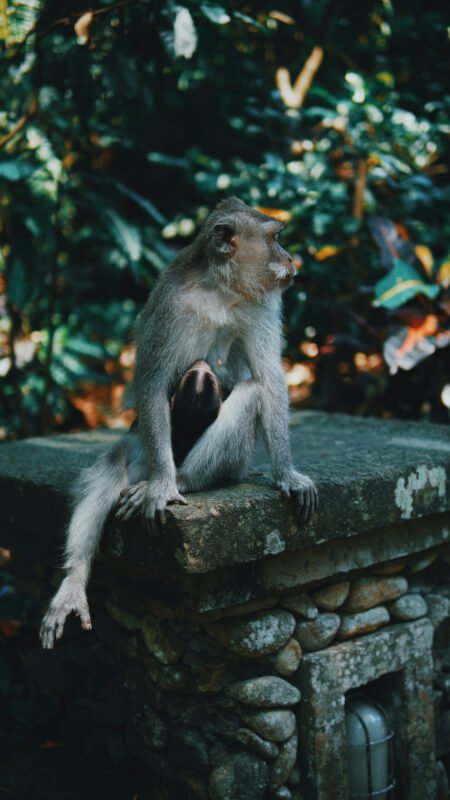
Role of Kinship in Social Bonding
Kinship plays a significant role in social bonding within primate family groups. It influences the recognition and treatment of relatives, cooperative care and sharing, and even the evolution of social behaviors.
Kin Recognition
Primates have the ability to recognize their kin, often through olfactory cues, vocalizations, or visual recognition. Kin recognition allows individuals to direct their affiliative behaviors and cooperative efforts towards relatives. This recognition promotes the formation and maintenance of social bonds, as individuals are more likely to invest in relationships with genetically related individuals.
Cooperative Care and Sharing
Kinship fosters cooperative care and sharing within primate family groups. Relatives, particularly siblings and other close kin, may contribute to the care and upbringing of offspring. Cooperative care enhances the survival and well-being of the young, while also strengthening social bonds within the group. Additionally, sharing resources, such as food or nesting sites, among kin helps maintain cooperation and reduces competition.
Kin Selection Theory
Kin selection theory explains the evolutionary basis of social bonding and cooperation within primate family groups. According to this theory, individuals are more likely to exhibit altruistic behaviors towards their close relatives, as doing so indirectly promotes the transmission of their shared genes. Kin selection supports the formation of social bonds and cooperative efforts within primate family groups, maximizing the chances of genetic success.
Impact of Social Bonds on Primate Society and Longevity
Social bonds have a profound impact on primate society and can significantly influence the overall health and longevity of individuals within a group.
Reduced Stress and Improved Health
Strong social bonds within primate family groups contribute to reduced stress levels and improved health outcomes. The emotional support provided by social bonds helps buffer individuals from the negative effects of stress, leading to better overall well-being. Additionally, individuals with strong social bonds are more likely to receive support in times of illness or injury, facilitating their recovery and increasing their chances of survival.
Increased Group Cohesion and Cooperation
Social bonds enhance group cohesion and cooperation within primate family groups. Strong affiliative relationships promote a sense of belonging and unity, encouraging individuals to work towards common goals and cooperate in various tasks. This increased group cohesion improves the overall efficiency and effectiveness of the group, ensuring mutual benefits and maximizing the chances of survival and reproductive success.
Extended Lifespan
Primates with strong social bonds often experience extended lifespans. The emotional and physical support provided by social bonds contributes to overall well-being and reduces the negative impacts of stress and loneliness, leading to improved health and longevity. Additionally, social bonds provide protection and support during times of vulnerability, enhancing the chances of surviving threats or predators.
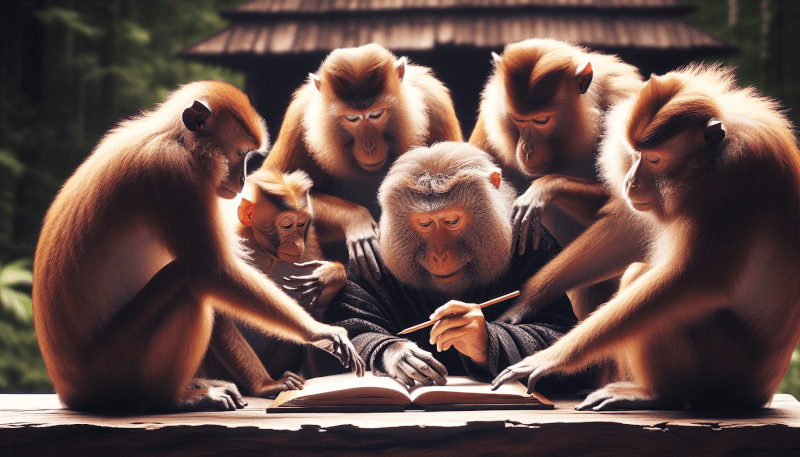
Threats to Social Bonds in Primate Family Groups
Primate family groups face numerous threats to their social bonds, which can have severe consequences for their survival and well-being.
Habitat Loss and Fragmentation
Habitat loss and fragmentation pose significant threats to social bonds in primate family groups. Reduced habitat availability and increased isolation disrupt communication and social interactions among group members, leading to the breakdown of social bonds. Diminished resources and increased competition can also strain social relationships, further jeopardizing the survival and cohesion of the group.
Human Disturbance and Hunting
Human disturbance and hunting activities have detrimental effects on social bonds in primate family groups. Increased human presence and activities disrupt natural behaviors and social dynamics, leading to increased stress and the disruption of social bonds. Furthermore, hunting can result in the loss of individuals within the group, disrupting existing social structures and resulting in the loss of valuable social bonds.
Interspecific Competition
Interspecific competition, particularly with other primate species, can threaten social bonds within primate family groups. Competing for limited resources, such as food or nesting sites, can lead to increased aggression and conflicts within and between primate species. The strain on social bonds resulting from competition can weaken group cohesion and increase the vulnerability of primate family groups to other threats.
Conservation Measures to Preserve Primate Social Bonds
Conservation efforts aimed at preserving primate social bonds require a multifaceted approach that addresses the various threats faced by primate family groups.
Protected Areas and Habitat Restoration
Creating and expanding protected areas can help preserve the natural habitats of primate family groups and support the formation and maintenance of social bonds. Protecting vital habitats provides the necessary resources for the survival and well-being of primate populations, allowing for the continuation of social interactions and bonding within the group. Additionally, habitat restoration efforts can help reconnect fragmented habitats, fostering increased social connectivity and ensuring the preservation of social bonds.
Anti-Poaching Efforts
Strong anti-poaching measures are essential for the preservation of primate social bonds. Poaching not only threatens individual lives but also disrupts social structures within primate family groups. Effective enforcement of anti-poaching laws and improved monitoring and surveillance systems can deter poaching activities, reduce human disturbance, and allow primate populations to thrive, safeguarding their social bonds.
Public Education and Awareness
Public education and awareness campaigns play a vital role in preserving primate social bonds. By raising awareness about the importance of social bonds and the threats faced by primate family groups, individuals can make informed choices and actively participate in conservation efforts. Education initiatives can also highlight the ecological and cultural significance of primate family groups, fostering public support for their protection and the preservation of their social bonds.
In conclusion, social bonds are of great importance in primate family groups, enhancing survival and protection, improving reproductive success, and strengthening cooperation and group dynamics. Primate family groups form various types of social bonds, including affiliative, maternal, sibling, and alloparental bonds. Genetic relatedness, individual experiences, and environmental factors influence the formation of social bonds. Communication through vocalizations, grooming, and body language plays a significant role in social bonding. Play behavior helps in the formation and strengthening of social bonds by practicing social skills and promoting cooperation. Conflict resolution strategies and the role of kinship further contribute to social bond maintenance. Primate society and longevity benefit from social bonds by reducing stress, increasing group cohesion, and extending lifespan. Threats such as habitat loss, human disturbance, hunting, and interspecific competition pose risks to social bonds in primate family groups. Conservation measures involving protected areas, anti-poaching efforts, and public education are essential for the preservation of primate social bonds. By understanding the importance and dynamics of social bonds, we can better appreciate and work towards the conservation of primate family groups.
